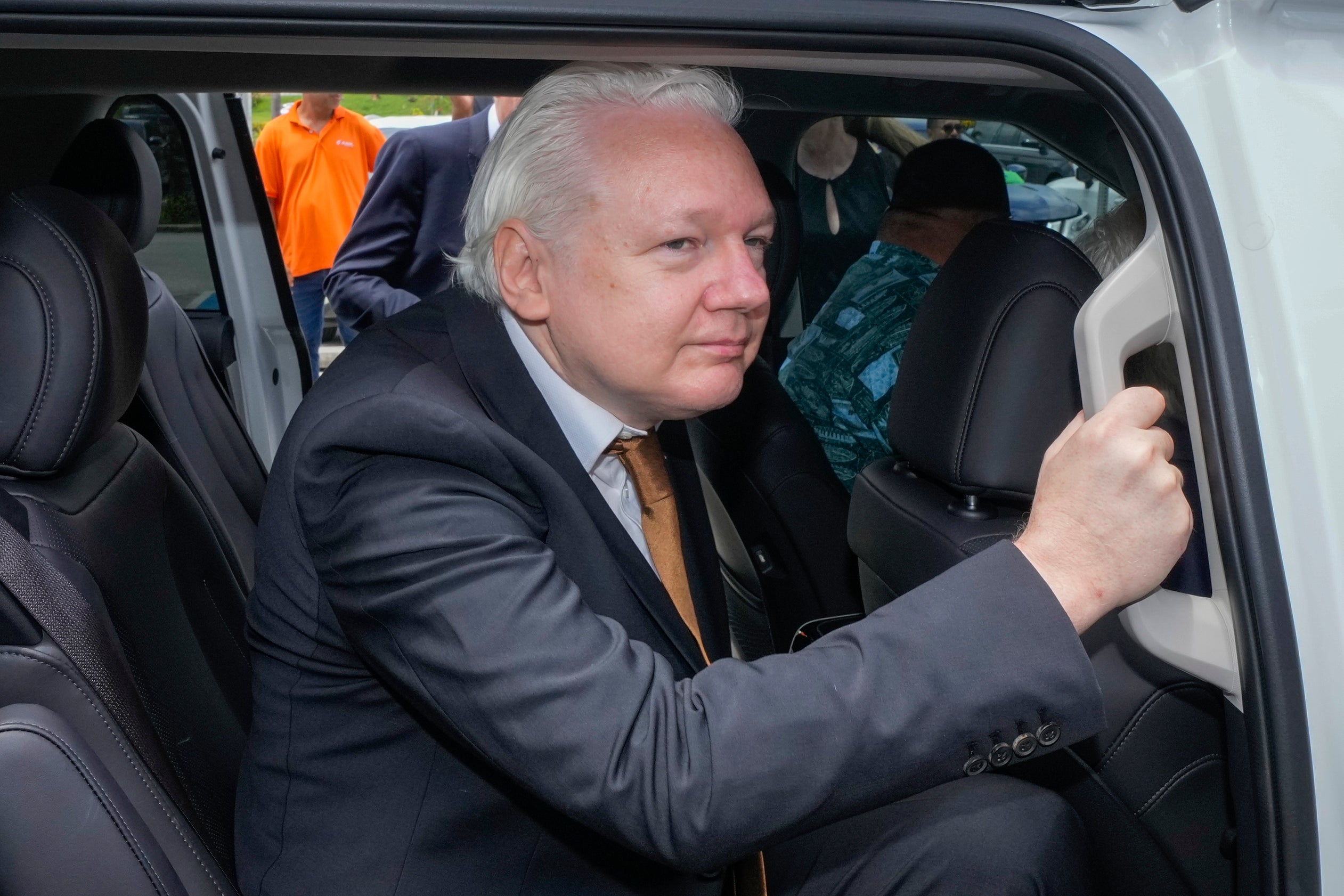WikiLeaks' Julian Assange to make first public statement since his release from prison
Wikileaks founder Julian Assange will make his first public statements since he was released from prison when he addresses the Council of Europe

Wikileaks founder Julian Assange will make his first public statements since he was released from prison when he addresses the Council of Europe on Tuesday.
Assange, 53, is expected to give evidence to the legal affairs and human rights committee of the Parliamentary Assembly of the Council of Europe in Strasbourg, France.
The Parliamentary Assembly, which includes parliamentarians from 46 European countries, said the hearing will discuss Assange's detention and conviction “and their chilling effect on human rights" ahead of a debate on the topic on Wednesday.
WikiLeaks said in a statement that Assange will attend the hearing in person “due to the exceptional nature of the invitation.”
Assange was released in June after five years in a British prison after he pleaded guilty to obtaining and publishing U.S. military secrets in a deal with Justice Department prosecutors that concluded a drawn-out legal saga. Prior to his time in prison, he had spent seven years in self-imposed exile in the Ecuadorian Embassy in London, where he claimed asylum on the grounds of political persecution.
The Australian internet publisher was accused of receiving and publishing hundreds of thousands of war logs and diplomatic cables that included details of U.S. military wrongdoing in Iraq and Afghanistan. His activities were celebrated by press freedom advocates, who heralded his role in bringing to light military conduct that might otherwise have been concealed.
Among the files published by WikiLeaks was a video of a 2007 Apache helicopter attack by American forces in Baghdad that killed 11 people, including two Reuters journalists.
But critics say his conduct put American national security and innocent lives — such as people who provided information to U.S. forces in Iraq and Afghanistan — at risk, and strayed far beyond the bounds of traditional journalism duties.
The years-long case ended with Assange entering his plea in a U.S. district court on the Northern Mariana Islands, an American commonwealth in the Pacific.
Assange pleaded guilty to an Espionage Act charge of conspiring to unlawfully obtain and disseminate classified national defense information. A judge sentenced him to the five years he had already spent behind bars in the U.K. fighting extradition to the United States.
Assange returned to Australia a free man in late June. At the time his wife, Stella, said he needed time to recuperate before speaking publicly.
His appearance on Tuesday comes after the Council of Europe's Parliamentary Assembly published a report on Assange's detention in a high-security U.K. prison for five years.
The assembly's human rights committee said Assange qualified as a political prisoner and issued a draft resolution expressing deep concern at his harsh treatment.
Bookmark popover
Removed from bookmarks